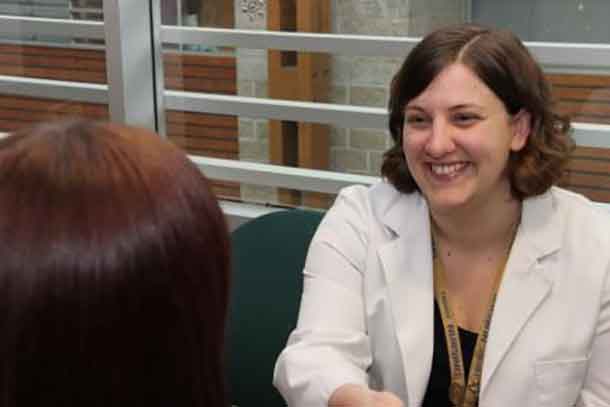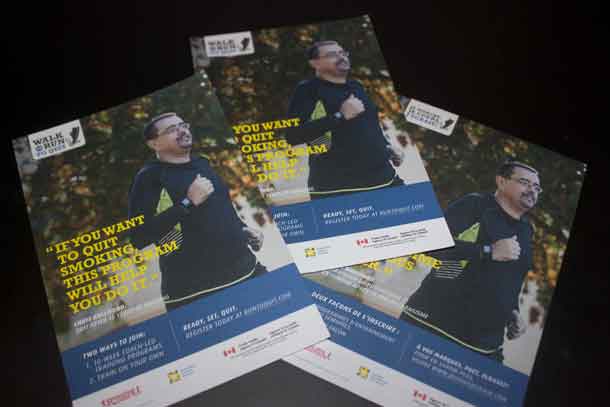

THUNDER BAY – “Are you thinking about quitting? Is it something you’d like to try?” That’s how Veronica Proper, Inpatient Tobacco Cessation Research Nurse, starts conversations with inpatients at Thunder Bay Regional Health Sciences Centre (TBRHSC). “If I say ‘try’ it’s less intimidating.”
Since May 2013 Proper has been approaching patients who indicate upon admission that they have smoked within the past 30 days and offers them a smoking cessation program. If patients are interested, Proper works with them to develop a personalized quit plan.
And if patients say no? “I still talk to them and let them know that the offer is always on the table. Sometimes, after a few days, a patient will think about ‘What do I have to do to not have to be in here?’ and they ask their nurse to give me a call to come to see them.”
Beyond its obvious benefits to inpatients, the program is also a research study led by Dr. Patricia Smith, through a partnership between TBRHSC, the Ministry of Health and Long-Term Care, and the Northern Ontario School of Medicine. “The success rate among hospitalized patients is much higher than the general public” says Smith. “So it’s a good time to give it a try. One reason for high success is that many people quit or cut down at least temporarily during hospitalization and go through the worst withdrawal period, first 2 to 3 days, without noticing it. So, with Veronica’s help, when people go home they can focus on the gains they made in hospital with cutting down or quitting rather than starting cold.”
Illness also motivates. “Many of the people who have signed up for the program had not been seriously thinking about quitting before they were hospitalized,” says Proper. “Then the reality of the situation hits home and many realize that they could at least take control of this part of their health.”
Only about 3% of people who try to quit smoking on their own are able to remain smoke-free. Compare that to the program at TBRHSC where 35% of patients who sign up with Veronica are still smoke-free one year after hospital discharge. “These are among the highest quit rates ever reported and show that the program is working,” says Proper.
One of the main reasons for the program’s success is that it takes into account every aspect of an individuals’ smoking behaviour.
“This program meets people where they’re at,” says Proper. “Even if you use medication to help you quit, quitting involves figuring out what you can do instead of smoking in all of the situations that usually trigger you to smoke.”
The approach is friendly, flexible, patient-centred, and supportive. After hospital discharge, Proper follows up by telephone with a regular schedule of calls. “Quite a few people have told me it made a big difference to be able to talk to someone outside their family. Others tell me that they were able to hang in there and not smoke because they knew that I would be calling.”
Proper loves her job. “Quitting smoking is the best thing you can do for your health,” she says. “And I get to support people through the process. Even making the decision that you want to quit is a big deal. There is a lot about our health that we can’t control but we can control what we do moving forward.”
If you are an inpatient interested in quitting smoking, you may ask to see the Inpatient Tobacco Cessation Research Nurse. Or, for help anytime, call the Smokers’ Helpline at 1-877-513-5333.



